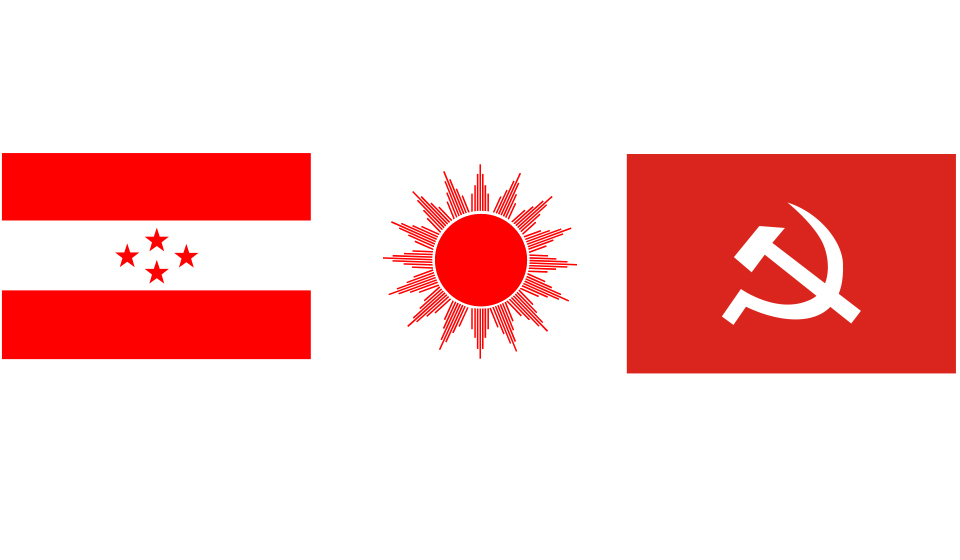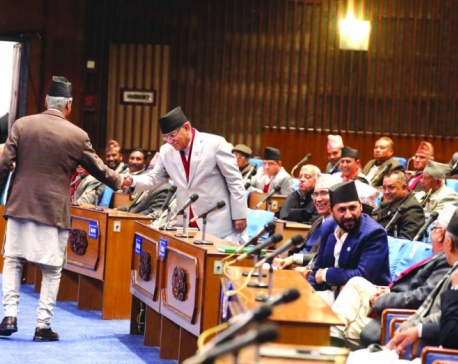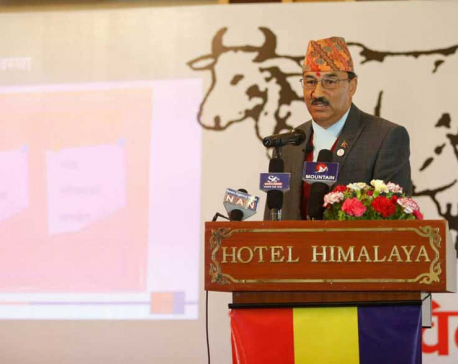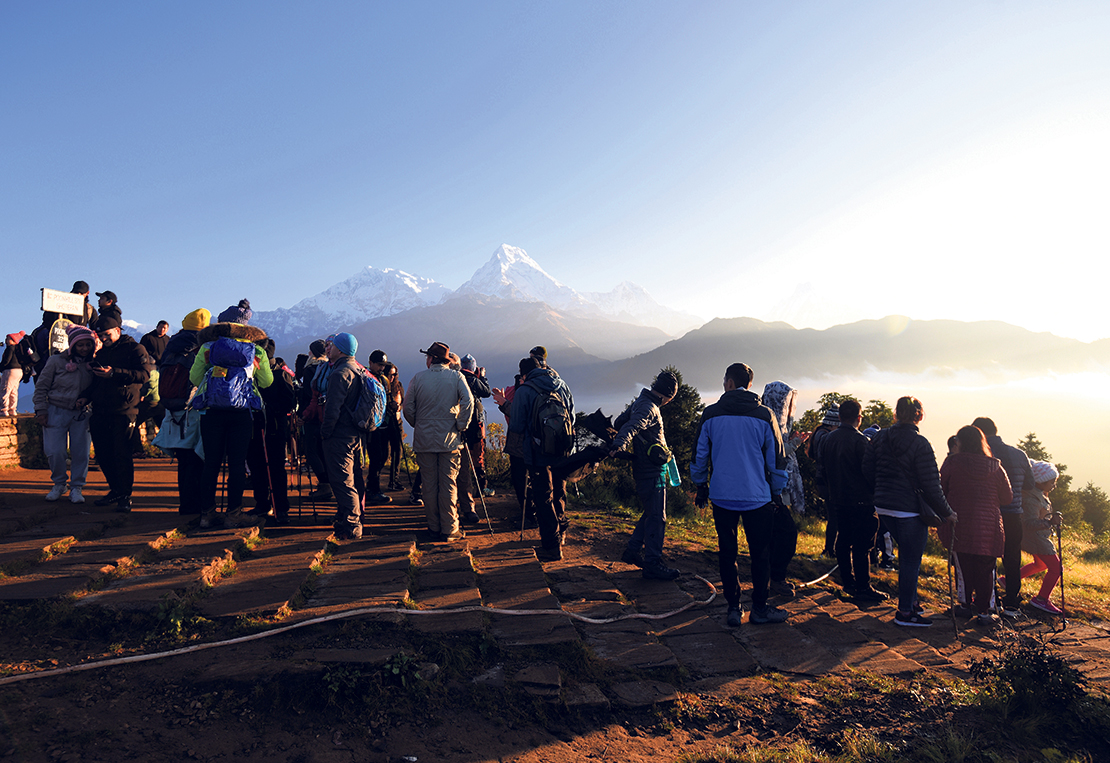
OR
Opinion


Arpan Gelal
Gelal is a senior researcher at Center for Social Inclusion and Federalism (CESIF) Nepal and faculty for Development Studies at National College, Kathmandu University.news@myrepublica.com
More from Author
This escalating ideological crisis within the political parties, lack of vision and clear action plan, disregard to the democratic norms in the selection of party leadership, sidelining the issues of inclusion as envisioned by the Constitution of Nepal, leaves ample grounds for suspicion on the ability and intention of political parties to institutionalize the nascent republican system of governance in Nepal.
The general conventions of CPN-UML and Nepali Congress re-elected former party chairs for the next tenure while the CPN (Maoist Center) concluded its convention handpicking the central committee members by Prachanda and subsequently appointing Prachanda as the chairman by the newly appointed Central Committee.
Timely intraparty elections are the skeleton for the democratic dynamics of any political party. However, open and meticulous discussion on the party’s ideological orientation and vision for the country’s prosperity and evaluation of its set strategies for the achievement of the same, makes the party ideologically vibrant. The lack of debates on the ideological direction of the party and rigorous discussion on the party’s further political pathway within CPN-UML and Nepal Congress’ conventions signal the pertinent ideological crisis within the parties.
Chairman of Maoist Center – Prachanda - brought into discussion the party’s vision and further strategy; it was criticized by the convention representatives who said it was incomplete and failed to analyze the current political concerns. Further, Prachanda remained silent on the counter proposal tabled by Dev Gurung and dissenting views forwarded by other few leaders. The failure of Prachanda to answer the issues raised by the discussion groups upon his ideological and political report indicates the growing dissatisfaction of party cadres with their leadership including the issues of lavish lifestyles of Maoist leaders and their (il)licit relationship with big contractors and businessmen.
The common pattern among the three major parties is the consolidation of the ruling elites in the leadership, sidelining the principles of inclusion in the selection of officeholders. This is visible among the personalities appointed for UML’s top party positions and elected candidates for Nepali Congress leadership. Although Nepali Congress tried to make its structure inclusive through the reservation system for various identity clusters in the positions of deputy general secretary, the candidates from minorities, female and other underrepresented groups got largely defeated in direct elections for various party posts.
The selection of youths in the top party positions within the CPN-UML and Nepali Congress can be seen as a positive move. The appointment of new generation politicians Gagan Thapa and Bishwa Prakash Sharma as General Secretary of Nepali Congress, Gokarnaraj Bista and Yogesh Bhattarai as Secretary of CPN-UML among many other youths in various central positions, is a positive step to shift the party leadership to the younger generation.
Except for the Nepali Congress, the lack of democratic norms within intraparty politics vividly surfaced during the convention of the major three political parties. UML Chairman Oli’s motive was to appoint all leadership positions and central committee members through consensus, restricting dissent and competition. Although he was challenged by Bhim Rawal for the post of party chair, Oli handpicked most of the central committee members and office-bearers. Oli’s strong disregard for a democratic practice, ideological discussions or political programs in the disguise of consensus politics and his desire to be appointed as the unchallenged party chairman, signals his authoritarian dynamics and institutionalization of his cult personality within the party. Furthermore, even at Maoist’s convention democratic elections for the party positions were sidelined, in the name of appointing the office bearers and central committee members through consensus.
Nepali Congress selected its party officials and central committee members through a democratic practice. However, the Nepali Congress convention focused entirely on the election of the central committee members and office-bearers, failing to open up the platform for ideological debates and discussion of the party’s vision and further strategies. Surprisingly, there were no political reports presented in the convention from the leadership leaving no grounds for discussion on the party’s ideological dynamics. Although Dr Shekhar Koirala,a candidate for party president, and candidates for General Secretaries Gagan Thapa and Bishwa Prakash Sharma put forward their concept papers on their vision, priorities and party’s further direction, there was no formal space for discussion on their proposals. The re-elected Nepali Congress President Sher Bahadur Deuba oriented himself solely on the election rather than unveiling his vision, ideas and further action plan for the party. This gap in the convention of Nepali Congress testimonies the escalating ideological crisis within the party which claims to be the largest social democratic political party in Nepal.
This escalating ideological crisis within the political parties, lack of vision and clear action plan, disregard to the democratic norms in the selection of party leadership, sidelining the issues of inclusion as envisioned by the Constitution of Nepal, leaves ample grounds for suspicion on the ability and intention of political parties to institutionalize the nascent republican system of governance in Nepal and direct the country towards the path of prosperity.
You May Like This

Is The Future of Nepali Political Parties Doomed?
Nepal, a landlocked country situated in the Himalayas, has witnessed significant political changes and challenges over the years. With a... Read More...

RPP for democracy with monarchy
KATHMANDU, Nov 8: The ruling Rastriya Prajatantra Party (RPP) has unveiled its election manifesto on Tuesday advocating democracy with monarchy in... Read More...

RTI will strengthen democracy: PM Dahal
KATHMANDU, Aug 23: Prime Minister Pushpa Kamal Dahal said that the Right to Information (RTI) will strengthen democracy in the... Read More...



Just In
- 352 climbers obtain permits to ascend Mount Everest this season
- 16 candidates shortlisted for CEO position at Nepal Tourism Board
- WB to take financial management lead for proposed Upper Arun Project
- Power supply to be affected in parts of Kathmandu Valley today as NEA expedites repair works
- Godepani welcomes over 31,000 foreign tourists in a year
- Private sector leads hydropower generation over government
- Weather expected to be mainly fair in most parts of the country today
- 120 snow leopards found in Dolpa, survey result reveals







_20220508065243.jpg)








Leave A Comment